Members: Europe
the Donor Research Network
the Donor Research Network
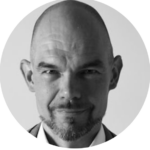
Key areas of interest:
Blood donation
Mikko has a long background of carrying out research with various genomic analysis at the VTT Technical Research Centre of Finland (2001 – 2015). Since 2016, he has been carrying out research on health of blood donors at the Finnish Red Cross Blood.
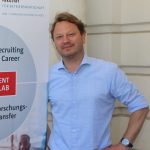
Key areas of interest:
Media management, new technologies, customer relationship management, blood donation management
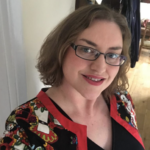
Key areas of interest:
Organ donation, inequality of organ donation faced by Black and Asian Ethnic communities

Key areas of interest:
Blood and organ donation, donor motivations, preferences and behaviour,
Eamonn Ferguson is Professor of Health Psychology at Nottingham University. He is a chartered health and occupational psychologist, a Fellow of the Royal Society for Public Health, an Associate Fellow of the British Psychological Society, and co-founding president of the British Society for the Psychology of Individual Differences.
His theoretical work focuses on cooperation, personality and pain and involves the integration of theory and models from biology, behavioural economics and psychology, to address questions concerning (i) the overlap between personality and prosocial preferences, (ii) prosocial preference, cooperation and health and (iii) pain phenotypes and pain prediction. His applied works translates his theoretical work to the (i) understanding of motivations, preferences and behaviour blood and organ donors, (ii) development and evaluation of early stage intervention to enhance blood and organ donor recruitment, (iii) effect of pro-sociality on farmer’s decision making concerning biosecurity.
He has published 209 peer reviewed journal articles to date (including in BMJ, Lancet Psychiatry, Psychological Bulletin, Annals of Behavioral Medicine, Health Psychology, BMC Medicine; Psychosomatic Medicine, Journal of Personality, Personality and Social Psychological Bulletin) with his work funded by the HSE, ESRC, and DEFRA, Versus Arthritis amongst others.
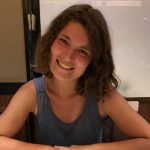
Key areas of interest:
Blood donation, prosocial behaviour
Caroline is a PhD candidate in the DONORS project led by Eva-Maria Merz. Within this project, she examines the role of cross-cultural differences in shaping people’s motivations to do good, currently with a focus on blood donation behavior.
She has a background in Cognitive Science and is interested in interdisciplinary approaches to understanding behavior.

Key areas of interest:
Health psychology, blood donation, motivations and barriers to donation
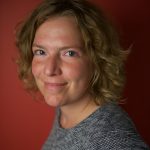
Key areas of interest:
Influence of affective and cognitive processes on donor experience, behavior, and vasovagal reactions
Dr. Elisabeth Huis in ‘t Veld, MBA is assistant professor and PI of Donor Cognition, situated at Tilburg University’s School of Humanities and Digital Sciences as well as Sanquin’s Donor Medicine Research department.
Elisabeth has a PhD in Cognitive Neuroscience (2015), broadly focusing on emotional experience and expression in the brain and body using behavioral, experimental, psychophysiological and imaging techniques such as EMG, EEG, ECG, fMRI. Her current research focusses on how affective and cognitive processes influence donor experience, behavior, and vasovagal reactions. Furthermore, her group uses machine learning and big data science methods and hopefully soon also Virtual and Augmented Reality to develop innovative solutions.
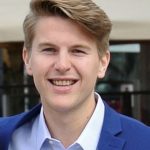
Key areas of interest:
Whole blood donors, iron supplementation

Key areas of interest:
Blood donation, donor diversity and behaviour, mental wellbeing, the social impact of digitalisation
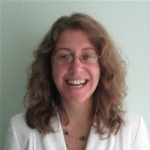
Key areas of interest:
Social and ethical aspects of health and medicine
Dr Laura Machin’s research interests rest within the social and ethical aspects of health and medicine. Previously, she has focused upon the social and ethical aspects surrounding reproductive medicine, in particular sex selection technology, and gamete and embryo donation. Dr Machin has also explored the moral and political aspects of umbilical cord blood donation, banking, and transplantation, as well as considered the use of donated deceased bodies to teach anatomy to medical students.
Dr Machin’s recent research lies within donation studies, which incorporates the social and ethical aspects of the donation of body parts, blood and tissue for a variety of purposes including art, education, transplantation, and research and development. Along with colleagues, she has proposed a sociology of donation, and considered what it may constitute. Dr Machin tends to draw on qualitative data, focusing on the policy, process, people and practice elements of donation such as conscientious objections within the field of organ donation.
Dr Machin founded and convenes a research network on donation studies which is funded by the British Sociological Association and Institute of Medical Ethics: deconstructing-donation-special-interest-group
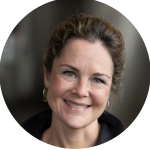
Key areas of interest:
Blood donation, donor behaviour, prosocial behaviour
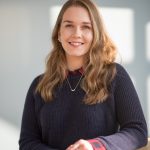
Key areas of interest:
Organ donation, donor relevant decisions under opt-out legislation

Key areas of interest:
Blood donation

Key areas of interest:
Organ transplantation and donation

Key areas of interest:
Blood donation

Key areas of interest:
Blood donation, infectious diseases
Franke is working as a junior researcher. Her main tasks include consulting Sanquin Blood Bank and Sanquin’s other research divisions in doing research with (blood) donors and assisting in studies performed by the Donor Studies Department. Additionally, she provides data and information for international collaborations.
Franke has a background in Biomedical Sciences and Epidemiology with a focus on infectious diseases.
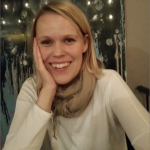
Key areas of interest:
Blood donation, biobanking
Vera is completing a PhD at the University of Eastern Finland. Vera’s research looks at how voluntary blood donors approach the possibility to add biobank donation to their blood donation practices at the the Finnish Red Cross Blood Service context.

Key areas of interest:
Donor recruitment and retention, impact of digital media on health and behaviour

Key areas of interest:
Donor behaviour, donations of time and money, prosocial behaviour
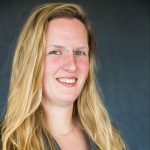
Key areas of interest:
Communication and media psychology, whole blood and plasma donors, SoHO
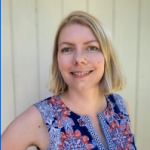
Key areas of interest:
Blood donation
Dr. Lotte van Dammen is a Biobank Coordinator and Data Manager at the Dutch Blood Bank, Sanquin. She received her Ph.D. in Medical Sciences in 2018 from the University of Groningen, The Netherlands. Lotte worked as a postdoctoral scholar at Iowa State University.

Key areas of interest:
SoHO
Peter has an interest in transfusion medicine with special attention to education and involved in various (inter)national projects. Advocating donor medicine with respect to all SoHO.
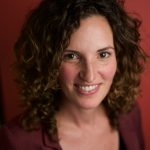
Key areas of interest:
Donor health, epidemiological and bio-statistical research methods
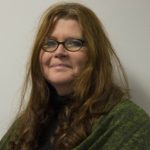
Key areas of interest:
Human breast milk donation, human milk exchange, human breast milk donors
Tanya is a medical social scientist who has been working on human milk exchange, including donation since 2005. Tanya is the lead author of the book Banking on Milk (Routledge, 2019). She is on several boards (the UK Association of Milk Banking, the European Association of Milk Banking, and GAMBA (a WhatsApp group of a Global Association of Milk Banks and Associations).

Key areas of interest:
Organ donation in health promotion, strengthening health systems, health behaviour, communication & education
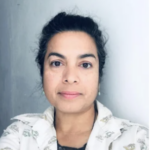
Key areas of interest:
Organ donation and transplantation pathway, ethnically-matched donated organs

Key areas of interest:
Stem cell donation, bone marrow donation
Catherine leads the team supporting Anthony Nolan’s stem cell donors after their donation. The team provides emotional and physical health support to ensure donors have recovered from their donation. The team will also provide information and support to donors on the outcome of their donation and enable patients and donors to write to each other.
Catherine also leads a number of research projects to provide service improvement to stem cell donors including projects to determine the mental health support needs of donors undergoing stem cell donation, and how to manage genetic findings identified in the recipient of the stem cell donation and the relevance to the donor.

Key areas of interest:
Blood donation
Besarta is a PhD candidate at the Chair of Marketing & Media (Prof. Dr. Michel Clement) at the University of Hamburg. Her research focuses on how to drive prosocial behavior with marketing. She investigates strategies aimed at fostering donor relationships and increasing donations, and is interested in understanding donor motivations and giving behavior. Besarta holds master’s and bachelor’s degrees in Business Administration with a focus in marketing, statistics and business management. She has a strong quantitative background and is experienced in designing, conducting and analyzing field and lab/online experiments. She is a member of the Healthcare Research Group at the University of Hamburg, in cooperation with the German Red Cross Blood Donation Service North/East. She also studies the impact of information diffusion and voice-assistants on consumer behavior.